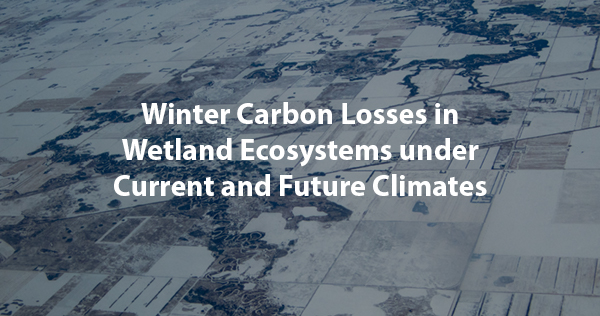Investigators

Principal investigator:
Fereidoun Rezanezhad
Research Associate Professor
Soil Biochemistry and Hydrology
University of Waterloo
Co-Principle Investigators:
- Philippe Van Cappellen (University of Waterloo)
- Jonathan Price (University
of Waterloo) - William L. Quinton (Wilfrid Laurier University)
- Nathan Basiliko (Laurentian University)
- Pascale Roy-Leveillee (Laurentian University)
Collaborators:
- Christina Smeaton (Memorial University of Newfoundland)
- Nancy Goucher (University of Waterloo)
Project description
High latitude cold regions, including Arctic and northern areas of Canada, are warming morethan twice as fast as the rest of the planet, with the greatest warming occurring during the winter. Giventhat a major process responsible for carbon dioxide (CO2) emissions, microbial respiration, increases withwarming even at sub-zero temperatures, winter is a critical period for carbon cycling. Consequently, CO2emissions during the non-growing season (NGS; fall, winter, spring) are expected to increase as theclimate warms. However, there is large uncertainty in estimates of current NGS CO2 emissions from coldregion ecosystems. Canada’s temperate to subarctic wetlands and permafrost peatlands hold large storesof carbon which are susceptible to loss under future climate warming scenarios. Therefore, understandingthe factors which regulate the processes controlling greenhouse gas emissions during the NGS is criticalfor predicting the fate of these vulnerable carbon stocks and for creating climate adaptation and mitigationstrategies. With a focus on these critical ecosystems, we bring together Canadian leaders from multipledisciplines from across universities with federal government scientists and policy makers to determine thedrivers of NGS carbon cycling, develop process-based environmental models, and estimate CO2emissions. In this project, through a combination of historical data synthesis, laboratory experiments andmodelling, we are now addressing the knowledge gaps on NGS emissions to provide data and tools toevaluate the impact of winter warming mitigation in controlling carbon losses from pan-Canadian wetlandecosystems. This research project mainly focuses on 1) determining the hydrological and climatic factorsdriving microbial NGS carbon cycling and 2) integrating the information and data gained into modelsdescribing the underlying processes controlling NGS emissions for incorporation into the Carbon BudgetModel of the Canadian Forest Sector (CBM-CFS). This will advance our ability to track and predictcarbon fluxes in cold regions wetland ecosystems and make improved, evidence-based recommendationsto estimate winter carbon losses and evaluate mitigation strategies.
